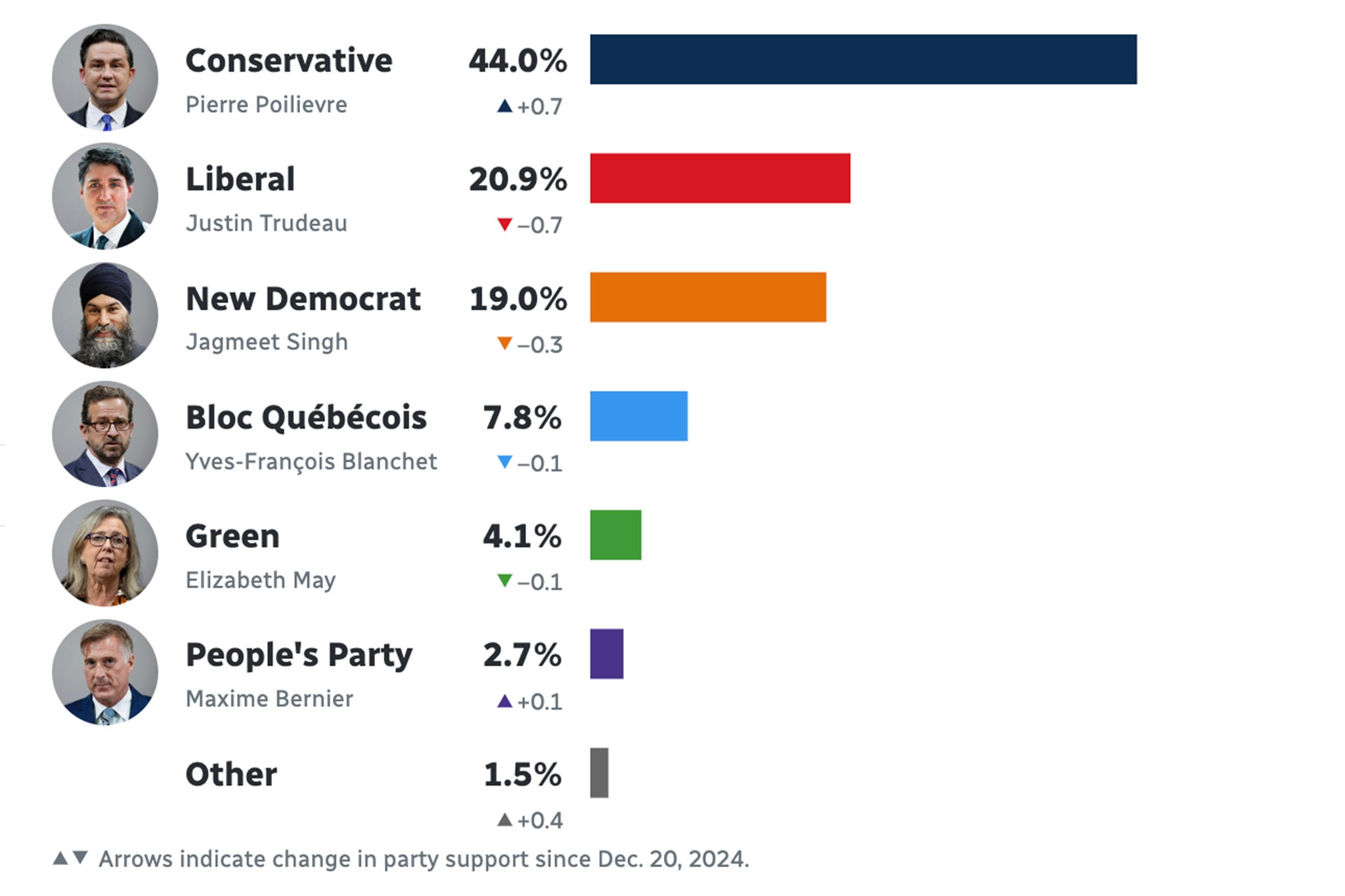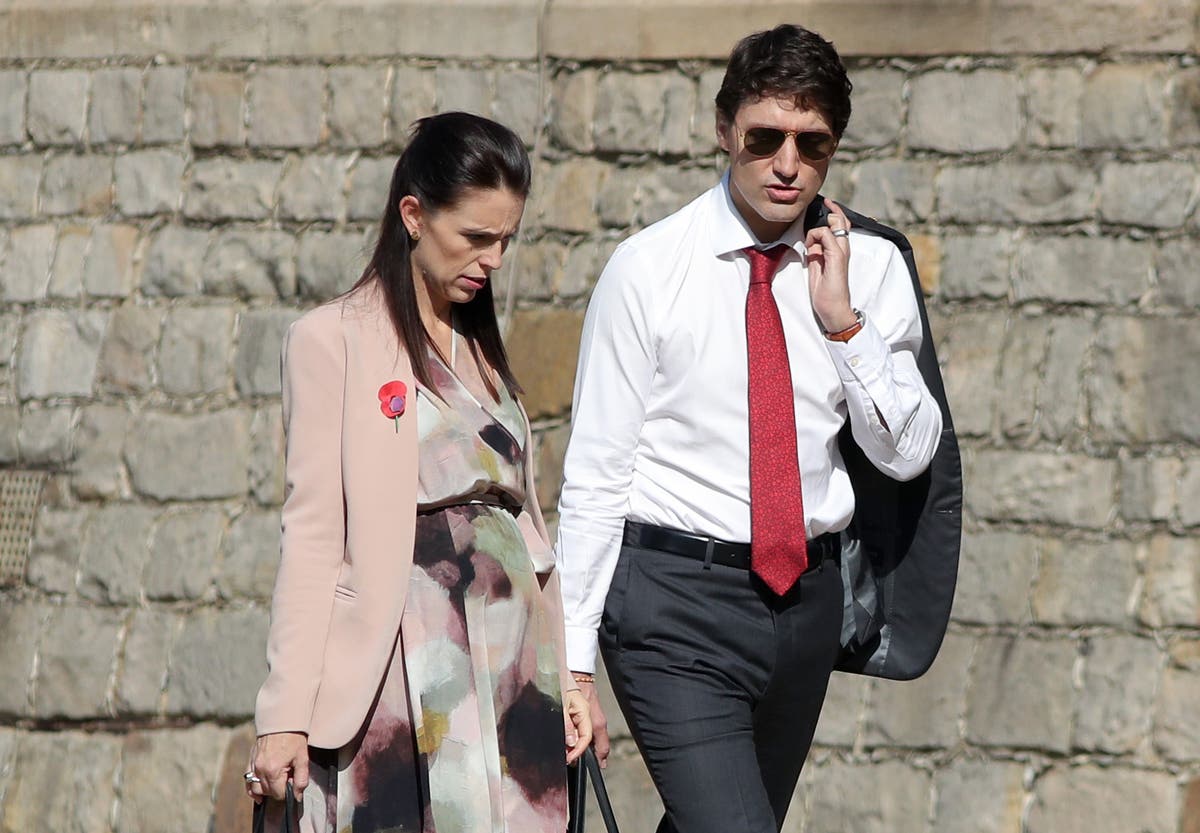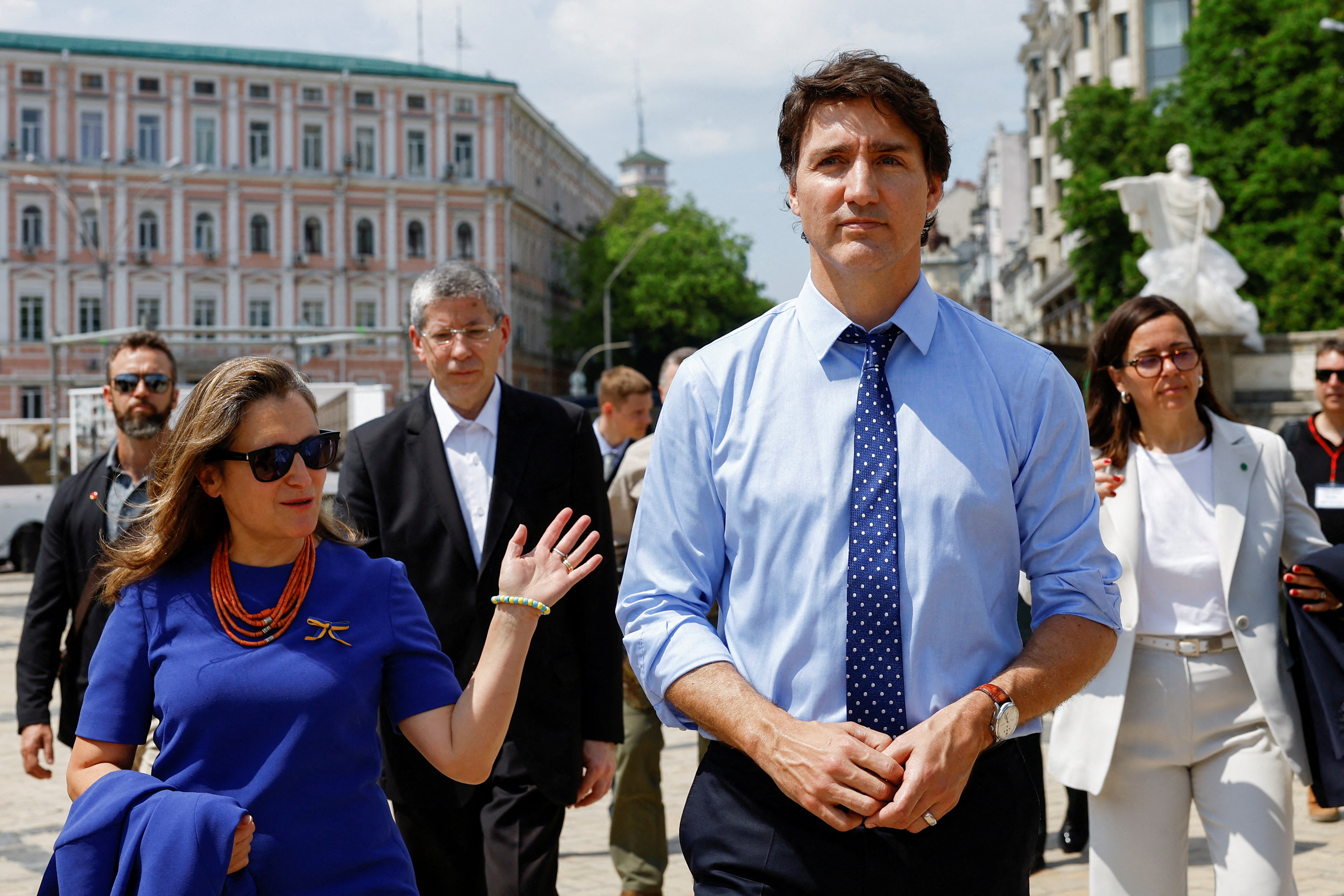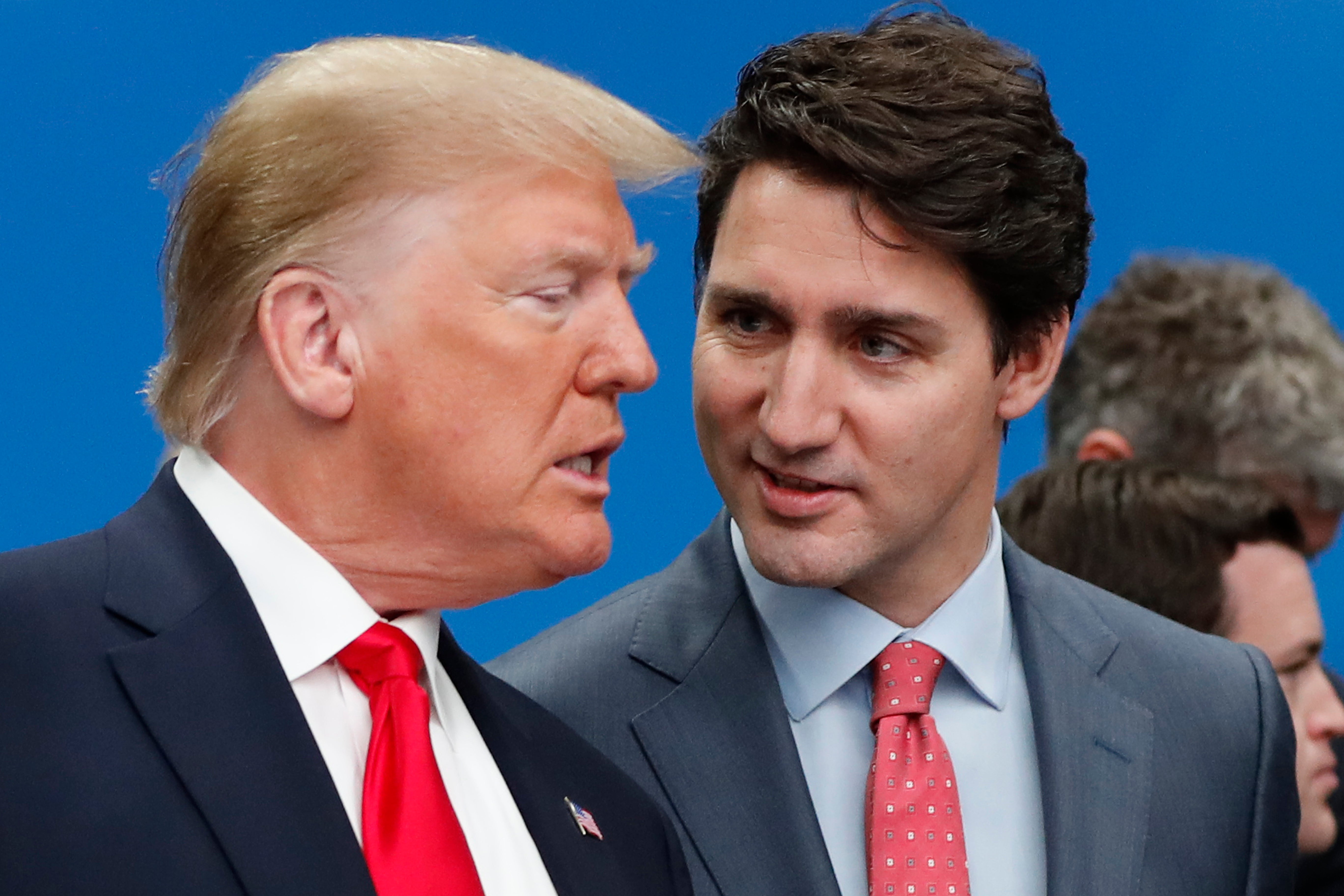Justin Trudeau - latest: Canadian prime minister says he has ‘regrets’ as he announces resignation
Pressure grew on Canada’s leader from within his Liberal Party over his handling of U.S. President-elect Donald Trump’s proposed trade tariffs
Your support helps us to tell the story
From reproductive rights to climate change to Big Tech, The Independent is on the ground when the story is developing. Whether it's investigating the financials of Elon Musk's pro-Trump PAC or producing our latest documentary, 'The A Word', which shines a light on the American women fighting for reproductive rights, we know how important it is to parse out the facts from the messaging.
At such a critical moment in US history, we need reporters on the ground. Your donation allows us to keep sending journalists to speak to both sides of the story.
The Independent is trusted by Americans across the entire political spectrum. And unlike many other quality news outlets, we choose not to lock Americans out of our reporting and analysis with paywalls. We believe quality journalism should be available to everyone, paid for by those who can afford it.
Your support makes all the difference.Justin Trudeau has announced his resignation as Liberal Party leader. He will remain as Canadian prime minister until the party has chosen a successor.
It’s the end of a nine-year stint in office, as pressure grew from within his Liberal Party which is trailing significantly behind the opposition Conservatives in the polls.
Trudeau made the announcement from his Rideau Cottage residence.
“I intend to resign as party leader, as prime minister after the party selects its next leader through a robust, nationwide, competitive process,” Trudeau said Monday. “Last night, I asked the president of the Liberal Party to begin that process. This country deserves a real choice in the next election, and it has become clear to me that if I am having to fight internal battles, I cannot be the best option in that election.”
The outgoing prime minister said he regretted not being able to change Canada’s electoral system.
A row broke out inside Trudeau’s party after U.S. President-elect Donald Trump announced a proposal to introduce 25 percent tariffs on the country.
Deputy Prime Minister Chrystia Freeland unexpectedly stepped down in mid-December, citing differences with Trudeau on how to approach Trump’s presidency and tariff proposals.
But pressure had already been growing on Trudeau from within the party as its popularity collapsed in the polls.
Canada is already due to hold a general election by the end of October this year.
Trudeau’s popularity collapse laid bare by poll tracker
With an election looming in October at the latest, the polls aren’t positive reading for Justin Trudeau’s governing Liberals.
A poll average tracker carried out by Canada’s CBC shows the Liberals trailing by more than 23 per cent, with support for his party having taken another hit after finance minister Chrystia Freedland’s resignation in December.
Mr Trudeau’s party is currently on 20.9 per cent in the tracker, which would be a 12.2 per cent drop from its voteshare in the 2021 election.
The left-leaning New Democrat party, led by Jagmeet Singh, is under two points behind the Liberals in the tracker.
The tracker, created by Canadian political analyst Éric Grenier of TheWrit.ca, finds there is a 99 per cent probability of the Conservatives winning a majority, and a less than 1 per cent chance of the Liberals winning the most seats.

Justin Trudeau loses caucus support in latest blow
Canadian Prime Minister Justin Trudeau is under immense pressure to resign with more members of his own party reportedly joining the effort to force Trudeau out after his deputy prime minister resigned and concerns about Donald Trump’s tariffs increase.
Signs are mounting that members of the Liberal Party, which Trudeau has led since 2013, are losing confidence in the prime minister.
In mid-December, Chrystia Freeland, the deputy prime minister and head of finance, unexpectedly resigned citing disagreements over the handling of Trump’s proposed 25 percent tariffs on the country – an issue that could damage the economy.
Already, Trudeau was facing low approval ratings due to the country’s cost of living crisis.
But since then, dozens of Liberal MPs have called on Trudeau to resign. Less than two weeks ago, a majority of Liberal MPs in the province of Ontario agreed, on a call, that Trudeau should step down, according to CBC.
Read Ariana Baio’s report from five days ago:

Justin Trudeau on his way out? Canada’s leader loses caucus support in latest blow
Trudeau has faced record-low approval ratings over the last few months
Trudeau can be forced out - but how?
If Justin Trudeau doesn’t resign, he could still be forced out as Canadian prime minister.
This would have to be done by the Canadian parliament - as there is no formal mechanism in the Liberal party to remove Mr Trudeau if he wanted to stay.
Canadian governments must retain the confidence of the House of Commons - any vote on budgets or spending which are lost by the government are considered a vote of no-confidence. The government falls, with an election typically taking place immediately.
The House of Commons will not return until January 27 this year, and the government can use procedural manoeuvres to avoid being brought down on spending measures.
But they will need to allocate a few days to opposition parties to bring forward motions on any matter, including no-confidence.
Jagmeet Singh, leader of the New Democratic Party which has helped prop up Mr Trudeau’s Liberal minority government, indicated in December that he would present a formal no-confidence motion in when the House of Commons returns.
If the current government allocated opposition days at the end of this parliamentary session, the last 10 days of March are the most likely time that Trudeau would be brought down, triggering an election in May.
In Focus | Justin Trudeau’s fall from grace shows politics is an ugly game
When Justin Trudeau became the Canadian prime minister in 2015, people were still using that thing called Facebook. I can remember well the frothing posts by female friends, none of whom could contain their excitement at the election of this hottie PM. Furthermore, they gushed at the notion that what made him hotter still was not only that he was young and handsome, he was a lovely liberal dude too, which made him even more super-duper guy.
(If my male friends had written about an equally attractive female prime minister in such a way, they might well have been cancelled, but let’s park that.) As far as my friends were concerned – and to be fair, Trudeau had plenty of male fanboys – here was the perfect Generation X politician, and all would surely be well in his good hands.
It certainly doesn’t look like that any more because, at the time of writing, it looks like Trudeau is on his way out.
Read the full piece from Guy Walters in December:

Justin Trudeau’s fall from grace shows politics is an ugly game
In just under 10 years, the prime minister of Canada has gone from the darling of the global liberal pack to a political pariah with an approval rating of less than 30 per cent. Here, Guy Walters looks at his career and why some seem to fall from a greater height than others in the ugly world of politics
What will happen if Trudeau resigns?
If Justin Trudeau resigns as prime minister before the Canadian election in October, the Liberal party will name an interim to take over while it sets up a special leadership convention.
These conventions can take months to arrange, leaving the Liberals at risk of going into an election without a prime minister chosen by members - which has never happened in Canada.
While the party could run a shorter-than-usual process, it could upset candidates who feel this puts them at a disadvantage, according to Reuters.
Whoever is named interim leader would not be named prime minister on a permanent basis, as tradition dictates the interim does not run as a candidate to lead the party.
Trudeau’s major fallout with finance minister
Reports that Canadian prime minister Justin Trudeau was considering stepping down first emerged in mid-December, after his finance minister resigned over the Trump tariff row.
Chrystia Freedland, who was also Mr Trudeau’s deputy prime minister, quit after clashing on the issue of how to deal with possible US tariffs.
Ms Freedland, 56, said at the time she was quitting Mr Trudeau asked her to take on a lesser post in government after they had argued for weeks over spending.
Her resignation came just hours before she was set to release Canada’s first economic plan since Donald Trump was elected to be the next US president.
In a stinging resignation letter, she described the possible tariffs as a “grave challenge” and questioned Mr Trudeau’s ability to deal with the threat.

The letter read: “Our country today faces a grave challenge. That means keeping our fiscal powder dry today, so we have the reserves we may need for a coming tariff war.
“That means eschewing costly political gimmicks, which we can ill afford and which make Canadians doubt that we recognize the gravity of the moment.”
Ms Freedland was replaced as finance minister by Dominic LeBlanc, a member of Mr Trudeau’s inner circle.
Full report: Canadian Prime Minister Justin Trudeau expected to resign in the next few days
Justin Trudeau is expected to announce his resignation this week, according to reports.
The Canadian Prime Minister, 53, may step down as early as Monday vacating the position of the head of Canada’s ruling Liberal Party after nine years in office, a source told Reuters and the Globe and Mail.
His departure would leave the party without a leader at a time when polls show the Liberals trailing the official opposition party. If he vacates, an election in Canada must be held by late October.
Sources told the Globe and Mail that they did not know definitely when Trudeau would announce his plans to leave but said they expect it would happen before an emergency meeting of Liberal legislators on Wednesday.
Mike Bedigan reports from New York:

Canada PM Justin Trudeau expected to resign in the next few days: report
The Canadian Prime Minister, 53, may step down as early as Monday, according to sources
What is the Trump-Trudeau tariff row all about?
In November, US president-elect Donald Trump took to social media to announce a unilateral batch of tariffs on Canada, China and Mexico.
“On January 20th, as one of my many first Executive Orders, I will sign all necessary documents to charge Mexico and Canada a 25% Tariff on ALL products coming into the United States, and its ridiculous Open Borders,” he wrote on his Truth Social platform.
It was a response to the migration of people and import of drugs from these countries into the US, Mr Trump added.
Mr Trudeau said in early December that Canadians are “beginning to wake up to the real reality that tariffs on everything from Canada would make life a lot more expensive”, adding that he would retaliate if Mr Trump went ahead with them.
“Trump got elected on a commitment to make life better and more affordable for Americans, and I think people south of the border are beginning to wake up to the real reality that tariffs on everything from Canada would make life a lot more expensive,” Trudeau said.
Mr Trump has since been dishing out jibes towards Canada and Mr Trudeau, describing him as a “governor” of the United States’ “51st State”.
Justin Trudeau likely to resign this week - reports
Canadian prime minister Justin Trudeau is expected to resign as early as today, according to reports.
It comes as his governing Liberal Party falters in the polls, and pressure grows over his handling of US president-elect Donald Trump’s proposed tariffs on Canada.
Follow here for all the latest as we get it.


Join our commenting forum
Join thought-provoking conversations, follow other Independent readers and see their replies
Comments